Joel Explained | The Lord Has Done Great ThingsSample
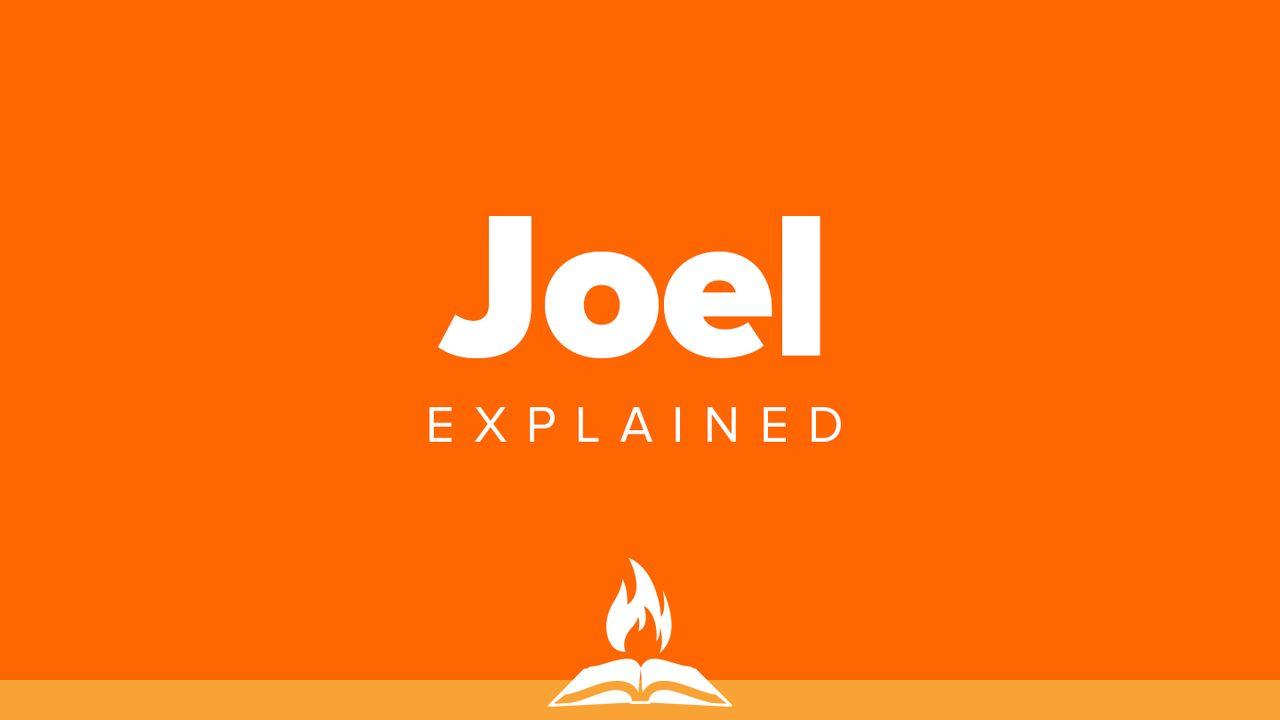
Day 1 | Joel 1
This devotional works best as an audio experience. Hit the play button now, and read along if you like.
Welcome to the book of Joel on Through the Word, Pastor Jonathan here, and today, we dive into this short but powerful book.
Corrupt leaders. Famine. War. Invasions. It could be the leading story of the evening news, and although the story we are about to read took place a long time ago, back in the days of the Kings of Judah, the message of the book of Joel also applies to our lives today.
“The word of the Lord that came to Joel son of Pethuel” (Joel 1:1).
We don’t really know anything about Joel, except he was a prophet, and, his father’s name. That’s literally it. We don’t even know when he prophesied, whether it was early or later in the history of Judah. But not knowing when the book was written doesn’t change the message, a message we are going to jump into right now:
“Hear this, you elders;
listen, all who live in the land.
Has anything like this ever happened in your days
or in the days of your ancestors?
Tell it to your children,
and let your children tell it to their children,
and their children to the next generation.
What the locust swarm has left
the great locusts have eaten;
what the great locusts have left
the young locusts have eaten;
what the young locusts have left
other locusts have eaten.” (Judah 1:2-4).
Joel starts his message to the nation of Judah by telling them to “hear” and “listen.” This double call to pay attention reveals the importance of Joel’s message. He sets the stage for the coming devastation. “Has anything like this ever happened in your days or in the days of your ancestors?”
Have locusts ever been so thorough in their destruction? Jerusalem and the surrounding countryside had been devastated by swarm after swarm of locusts. The nation would experience financial ruin and famine because of the severity of the plagues. The devastation was so complete, Joel tells the people that they would be telling their children’s children, “I lived through the locusts.”
In 1915, a locust swarm hit modern day Syria and Israel, then part of the Ottoman Empire. The swarm couldn’t have come at a worse time. The Allies had blockaded Ottoman ports, preventing food from being imported. Various crops were destroyed and the famine that followed was severe. For years, the country was left in tatters. When the entire economy is based on agriculture, an invasion of locusts is one of the worst things that can happen.
And here, Joel wasn’t describing some future judgment. He was describing to them their present state. The nation had already been hit by a swarm; the devastation had already occurred. The people of Judah were left picking up the pieces of their broken farms, scouring for any scraps left over by the destructive insects. Joel then describes just how bad it was.
“Wake up, you drunkards, and weep!
Wail, all you drinkers of wine;
wail because of the new wine,
for it has been snatched from your lips.
A nation has invaded my land,
a mighty army without number;
it has the teeth of a lion,
the fangs of a lioness.
It has laid waste my vines
and ruined my fig trees.
It has stripped off their bark
and thrown it away,
leaving their branches white.” (Joel 1:5-7).
The destruction of Judah is nearly complete. In these verses, and those that follow, Joel lists off everything that the locusts devoured. Grape vines, fig trees, olive trees, wheat, barley, pomegranate, date palm, and fruit trees. Everyone is affected, from the drunkards that have no wine, to the priests who can no longer offer grain and drink offerings in the temple.
The plague was terrible, and Joel wanted the people to know that this swarm was no mere natural disaster. This was supernatural. God himself had sent the plague as a manifestation of what the Bible calls, “The Great and Terrible Day of the Lord”, a day of judgment. For those in sin, it is a day of great judgment; for those walking in faith, a day of salvation.
Joel’s message is this: “The locust swarm is the day of the Lord that you have heard the prophets foretell. You may have thought it would start with the Gentiles – but we have had a taste of it first. We, the chosen people of God, are not exempt. We must repent, before the fullness of God’s judgment falls on us.”
“Put on sackcloth, you priests, and mourn;
wail, you who minister before the altar.
Come, spend the night in sackcloth,
you who minister before my God;
for the grain offerings and drink offerings
are withheld from the house of your God.
Declare a holy fast;
call a sacred assembly.
Summon the elders
and all who live in the land
to the house of the Lord your God,
and cry out to the Lord.” (Joel 1:13-14).
He tells them to declare a fast, because even eating isn’t important compared to getting right with God. He calls for a sacred assembly, so that God’s people can come together in repentance. He calls for the elders, the leaders, to lead the way into the temple, and cry out to the Lord.
“Alas for that day!
For the day of the Lord is near;
it will come like destruction from the Almighty.” (Joel 1:15).
The day of the Lord was coming, and the nation had to repent. They had seen the judgment of locusts, but unless they repented, the judgment coming would be worse.
The nation of Judah should have seen the locusts as a sign of this coming judgment. Centuries before, Moses had written Deuteronomy 28, where he listed out the respective blessings and curses for obedience and disobedience. God promised great blessings if his people were obedient to His covenant with them. They would have more than enough food, healthy flocks and herds, and large, fruitful families. But for disobedience? I’ll let Deuteronomy speak for itself.
“You will sow much seed in the field but you will harvest little, because locusts will devour it. You will plant vineyards and cultivate them but you will not drink the wine or gather the grapes, because worms will eat them. You will have olive trees throughout your country but you will not use the oil, because the olives will drop off. You will have sons and daughters but you will not keep them, because they will go into captivity. Swarms of locusts will take over all your trees and the crops of your land.” (Deuteronomy 28:38-42).
But the locusts were not the full judgment that could fall upon the people of Judah. Deuteronomy continues:
“The Lord will bring a nation against you from far away, from the ends of the earth, like an eagle swooping down, a nation whose language you will not understand, a fierce-looking nation without respect for the old or pity for the young. They will devour the young of your livestock and the crops of your land until you are destroyed. They will leave you no grain, new wine or olive oil, nor any calves of your herds or lambs of your flocks until you are ruined. They will lay siege to all the cities throughout your land until the high fortified walls in which you trust fall down. They will besiege all the cities throughout the land the Lord your God is giving you.” (Deuteronomy 28:49-52).
The destruction that would fall upon the people of Judah was severe. But the invading army had not arrived yet. The people of Judah were still in the land. And so Joel, knowing that the next wave of judgment would be severe, called for the nation to repent and turn back to God.
This chapter reminds me of what happened in the United States after 9/11. There was a call by many to repent, and turn back to the Lord. Many saw 9/11 as judgment, a divine wakeup call. For about a month, churches were filled. America had been judged, and the people cried out to God, for a time. But what would it take for true revival and repentance to occur? It takes people like Joel, those unafraid of crying out, 'return to the Lord!'
Read Joel 1
All verses are quoted from the NIV unless otherwise noted.
Scripture
About this Plan

The Bible can be confusing, Through the Word explains it with clear and concise audio guides for every chapter. Here, in the book of Joel, the prophet warns a disobedient and sinful people of the coming day of the Lord. Yet, there is still time to repent, time to rend their hearts and return to the Lord. The Lord calls his people back, but will the people listen?
More
Related plans
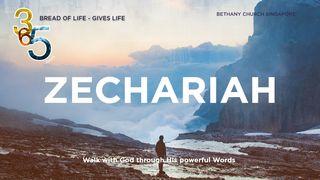
Book of Zechariah
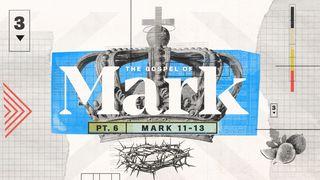
The Gospel of Mark (Part Six)
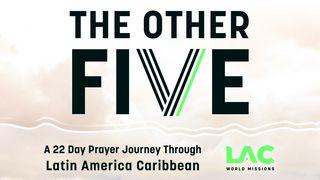
The Other Five Prayer Journey
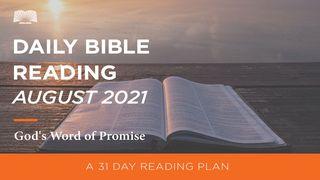
Daily Bible Reading – August 2021: God’s Word of Promise
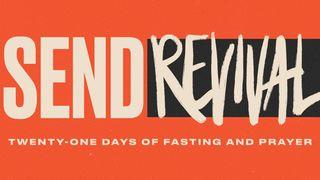
21 Days of Fasting and Prayer Devotional: Send Revival
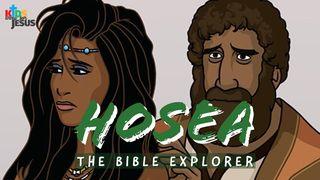
Bible Explorer for the Young (Hosea)
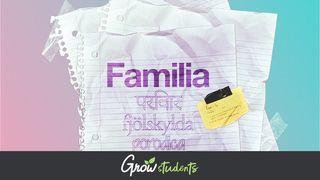
Familia

God Within You - Awaken to the Power and Presence of the Holy Spirit

The Sabbath Way: Finding the Rest Your Soul Craves by Travis West
